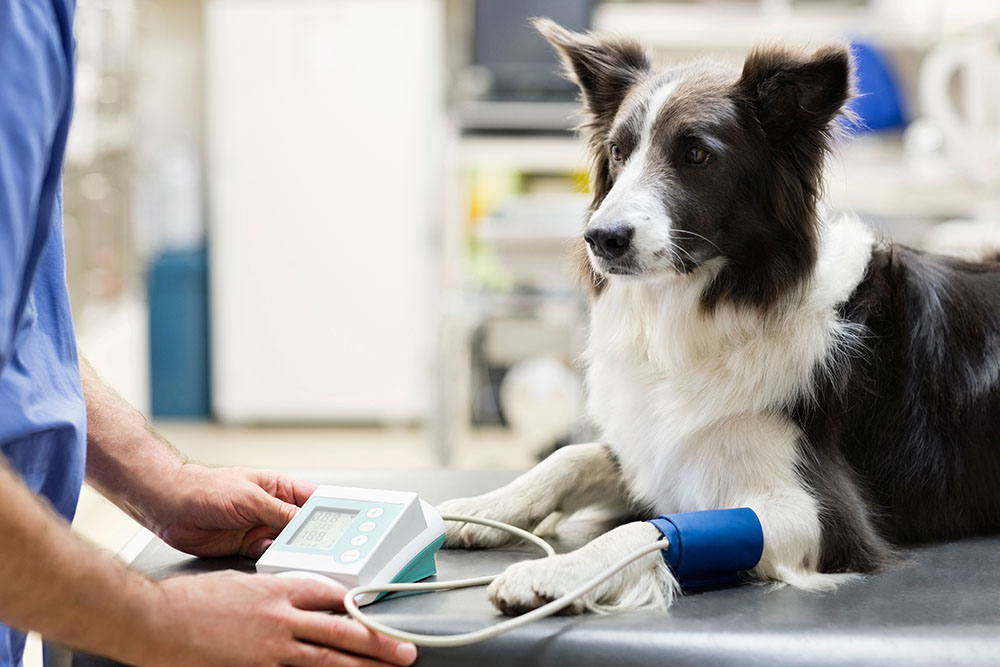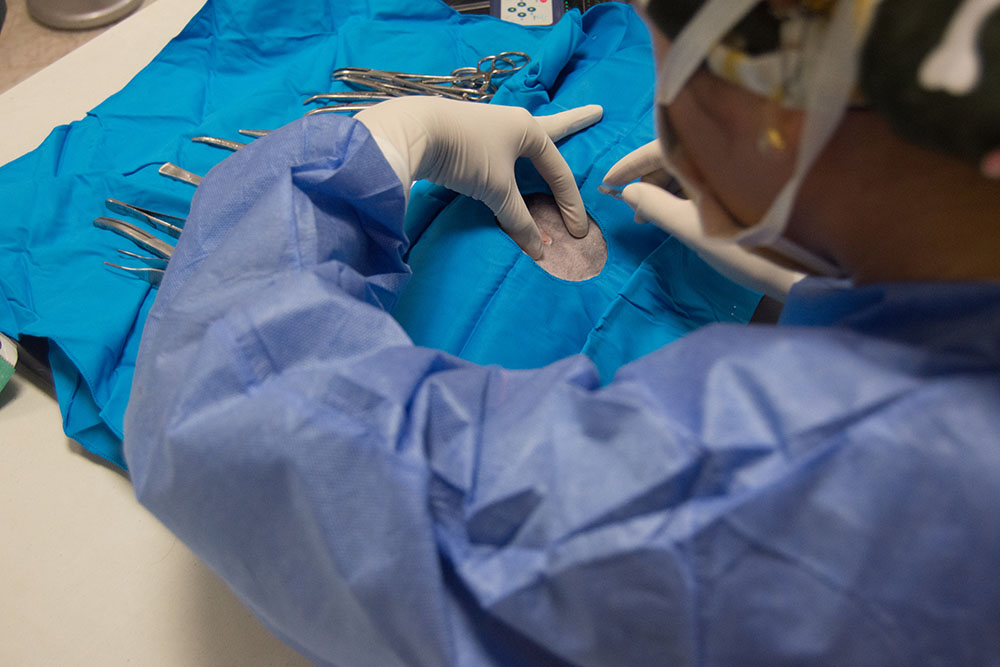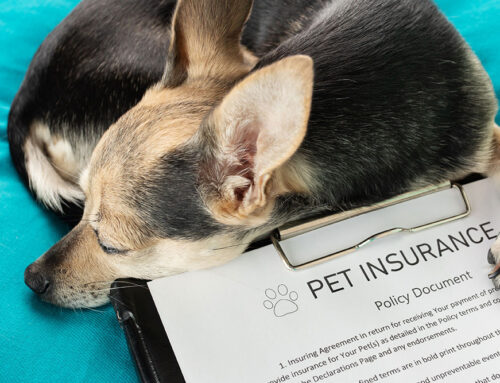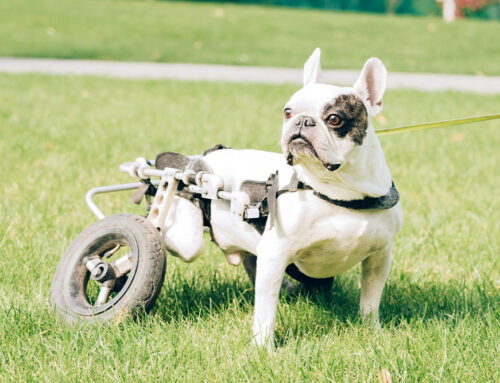Understanding the Most Common Pet Surgeries and How to Prepare Your Pet
From a playful leap that leads to a torn ligament to a dental extraction that relieves chronic pain, surgery plays a key role in keeping pets healthy and comfortable. For many families, the idea of anesthesia or recovery can feel stressful, but clear guidance and gentle care make all the difference.
At Star of Texas Veterinary Hospital in Austin, our Fear Free Certified and Cat-Friendly team prioritizes comfort and calm at every step. We combine advanced surgical techniques with a compassionate environment to minimize stress before, during, and after every procedure.
Surgery as a Step Toward Long-Term Health
Every surgical procedure has a purpose- some prevent disease, others restore function or relieve pain. Understanding what’s involved can help you prepare, ease anxiety, and recognize when surgery may be the best option for your pet.
Soft Tissue Repair: Lacerations, Bite Wounds, and Abscesses
Lacerations and bite wounds are among the most common reasons pets need emergency surgery. Even small wounds can trap bacteria under the skin, leading to abscesses or infection. Cat bite injuries often develop into swollen, painful pockets that require surgical drainage.
Surgical repair involves cleaning, removing damaged tissue, and precisely closing the wound to promote healthy healing. For complex injuries, staged closure or special tension-relieving techniques may be used for better results.
Digestive Tract Surgery: Foreign Body Removal
Dogs and cats are naturally curious, and sometimes that curiosity leads to trouble. Ingesting toys, bones, or strings can cause life-threatening intestinal blockages. Gastrointestinal foreign body obstruction requires immediate veterinary care.
Symptoms such as vomiting, loss of appetite, or abdominal pain should never be ignored. At Star of Texas Veterinary Hospital, advanced imaging and timely surgery help remove obstructions safely and restore normal digestion.
Spay and Neuter Surgeries: Protecting Health and Preventing Disease
Spaying and neutering are among the most common and beneficial veterinary procedures. These surgeries not only prevent unwanted litters but also protect pets from serious health problems.
Spaying eliminates the risk of pyometra, a life-threatening uterine infection, and significantly reduces the likelihood of mammary tumors when performed before the first heat cycle. Neutering prevents testicular cancer and may help reduce marking, roaming, and hormone-driven aggression.
At Star of Texas Veterinary Hospital, our veterinary spay and neuter care is tailored to each pet’s age, breed, and health. Have Questions? We have answers!
Learn more:
Orthopedic Surgeries: Repairing Ligaments and Restoring Mobility
Active dogs, especially large breeds, are prone to cruciate ligament injuries that cause lameness, swelling, and pain. A torn cranial cruciate ligament (similar to an ACL tear in humans) typically requires surgical repair.
The Tibial Plateau Leveling Osteotomy, or TPLO surgery, stabilizes the knee by changing its mechanics and provides faster, stronger recovery compared to older techniques. With guided rehabilitation, most pets return to normal activity within a few months and enjoy lasting mobility.
Hip dysplasia is another common orthopedic concern. Hip dysplasia surgical options vary based on age and severity, from joint stabilization to full replacements. For smaller pets, a Femoral Head Ostectomy (FHO) can relieve pain by removing the damaged femoral head, allowing a “false joint” to form.
Treating Fractures and Severe Injuries
Fractures are emergencies that often require surgical repair to restore alignment and stability. Techniques using plates, screws, or pins ensure bones heal correctly and maintain full range of motion.
Some severe injuries, infections, or bone cancers may require amputation. Amputation surgery can sound intimidating, but pets typically adjust quickly- most return to their normal, active lifestyles within weeks.
Cancer and Mass Removals
Cancer is one of the most common health issues affecting aging pets. Surgical removal of tumors is often the first and most effective step toward recovery.
Depending on the tumor’s location and type, additional treatment such as chemotherapy or radiation may be recommended. Early intervention gives pets the best chance at remission and long-term comfort.
Dental Surgeries: Addressing Oral Pain and Damage
Oral surgery is essential for maintaining a pet’s overall health. Fractured or infected teeth can cause pain, affect eating habits, and even lead to heart or kidney complications if bacteria spread through the bloodstream.
Our dental care services include extractions, cleanings, and treatment for fractured teeth. Prompt diagnosis and treatment prevent complications and improve long-term oral health.
Urinary and Bladder Surgeries
Urinary blockages and bladder stones can be painful and life-threatening, especially in male cats and small-breed dogs. Cystotomy surgery opens the bladder to remove stones or obstructions and restore normal urination.
Post-surgical care often includes prescription diets, hydration monitoring, and periodic urine tests to prevent recurrence.
Post-Surgical Care Recovery
Recovery doesn’t end when the surgery does- it begins there. The healing process at home plays a major role in how quickly and comfortably your pet returns to normal. Following your veterinarian’s instructions carefully ensures a smooth recovery, prevents complications, and helps your pet feel safe and supported.
Pain control is the first priority. Your veterinary team may prescribe anti-inflammatory medications, antibiotics, or mild sedatives to ease discomfort and prevent infection. Administer all medications exactly as directed and monitor your pet closely for signs of pain such as restlessness, panting, or reluctance to move. If anything feels off, contact the clinic right away- early communication helps avoid setbacks.
Limited activity is just as important. Too much movement too soon can disrupt healing or reopen incisions. Keep walks short and controlled, avoid stairs and jumping, and discourage rough play. For cats and smaller pets, create a quiet, confined space with cozy bedding and easy access to food, water, and a litter box.
Incision care prevents infection and speeds healing. Check the site twice daily for redness, swelling, or discharge, and prevent licking or scratching by using an Elizabethan collar or a soft recovery garment. Avoid applying ointments or cleaning solutions unless your veterinarian recommends them.
Soft-tissue procedures usually heal within 10–14 days, while orthopedic surgeries can require several months of guided rehabilitation. Gentle stretching, short leash walks, or structured exercises may be introduced as healing progresses.
To support at-home recovery, Star of Texas Veterinary Hospital provides individualized after-surgery care instructions for each patient. We emphasize calm environments, steady routines, and stress-free care as part of our Fear Free approach. Techniques such as gentle handling, pheromone sprays, and soft background music help soothe anxiety during rest and follow-up visits.
For pets needing additional support, veterinary physical therapy may be recommended to restore strength, flexibility, and balance. Consistent follow-up visits allow your veterinary team to track progress, adjust medications, and confirm healing milestones- ensuring that every pet recovers comfortably, confidently, and at their own pace.
Your Partner in Compassionate, Low-Stress Surgical Care
Surgical care is about more than technical precision- it’s about comfort, trust, and communication. At Star of Texas Veterinary Hospital, we combine medical excellence with genuine compassion to help pets heal comfortably and families feel informed every step of the way.
If your pet shows signs of pain, mobility issues, or behavioral changes after an injury, reach out for guidance. Our team is here to answer your questions and help you make confident decisions about your pet’s health.
To schedule a consultation or learn more about our surgical options, call (512) 291-1600 or contact us online. Our team is honored to provide the gentle, expert care your pet deserves- every step of the journey.







